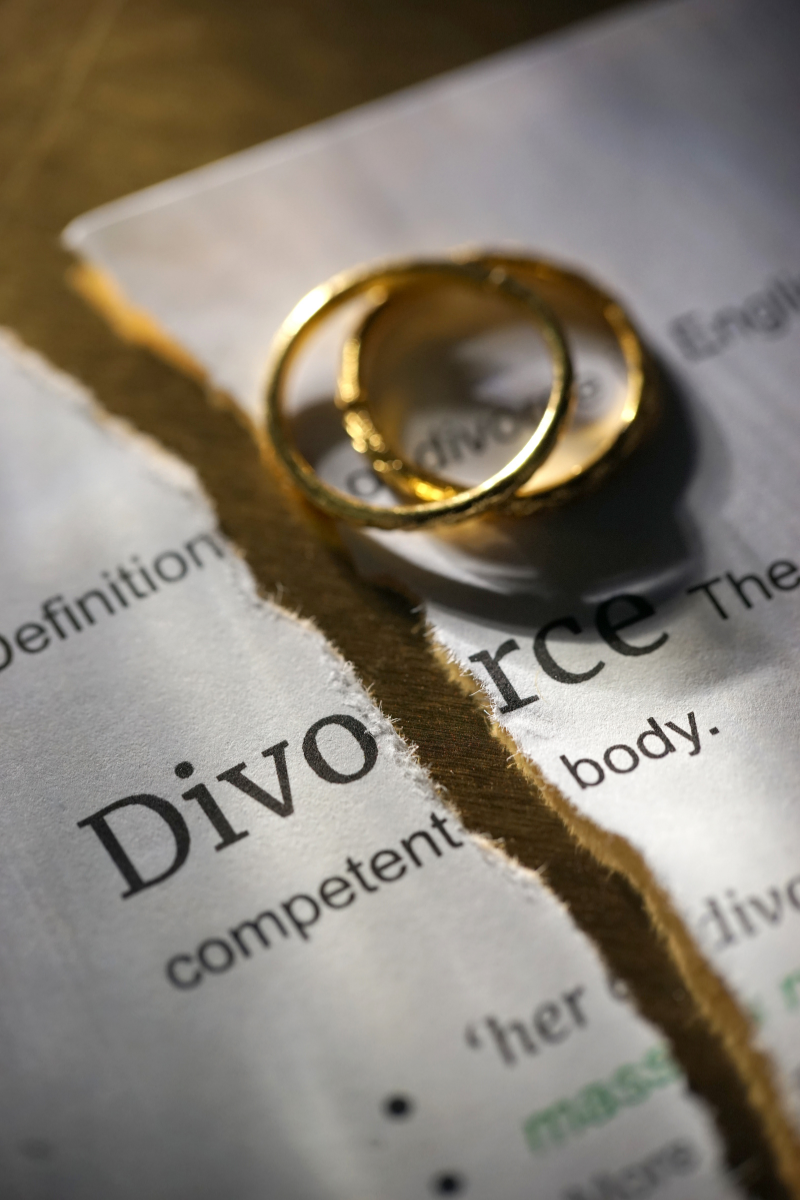How is Cryptocurrency Handled in an Illinois Divorce?
Bitcoin is already making waves in 2025, as cryptocurrency investors watch closely after Donald Trump’s second presidential inauguration on January 20. Trump has issued over 100 executive orders on his first day in office, including measures that impact Bitcoin and the broader digital asset industry. However, the rise-and-rise of Crypto in the U.S. means the rise-and-rise of Crypto in divorce cases.
Cryptocurrency is no longer a niche financial asset—it’s mainstream. In 2024, global cryptocurrency ownership reached over 420 million people, with Bitcoin and Ethereum dominating the market. A flurry of executive orders could come within Trump’s first 100 days, with crypto orders enacted on Day One, Reuters reported in late December.
As digital currencies become more integrated into financial portfolios, their presence in divorce cases has surged. For many couples in Illinois, dividing cryptocurrency presents unique challenges beyond traditional assets. From extreme price volatility to the decentralized nature of digital wallets, handling cryptocurrency in divorce requires careful consideration.
Below, we explore the most pressing challenges, including valuation, tracking ownership, and navigating tax implications, and how Illinois law addresses these issues.
What is Cryptocurrency?
Cryptocurrency is a form of digital currency that operates on decentralized blockchain technology. Unlike traditional fiat currencies, central banks do not regulate cryptocurrencies. Although Bitcoin remains the most recognized digital asset, the market has diversified significantly with the emergence of alternatives such as:
- Litecoin
- Solana
- Ethereum
- Zcash
- Monero, among others.
These digital currencies have gained traction for their unique features and applications, extending beyond financial transactions into smart contracts, privacy, and decentralized applications. As cryptocurrency becomes more mainstream, its integration into various aspects of life is expected to expand further. Now, let’s explore how cryptocurrency impacts divorces across the United States.
Challenges in Handling Cryptocurrency During Divorce
The rise of cryptocurrency has added unique complexities to divorce proceedings in Illinois. Unlike traditional assets, cryptocurrency presents challenges that require tailored, in-depth experience to address effectively. From valuation to ownership tracking and tax implications, these issues can significantly impact the equitable division of assets. Below, we explore the key challenges divorcing couples face when handling cryptocurrency.
- Valuation: In Illinois divorce cases, crypto’s valuation date can be critical. Courts typically use the date of filing or the date of trial to assess the value of marital assets, but the fluctuating nature of cryptocurrency might require additional considerations.
- Tracking Ownership: Unlike traditional financial accounts, cryptocurrencies are often stored in digital wallets or blockchain platforms without easily accessible account statements. This decentralized nature can make it challenging to identify and verify holdings.
- Tax Implications: Converting cryptocurrency to cash or transferring it to another party may trigger capital gains taxes. Illinois courts may consider these tax consequences when dividing assets to help ensure an equitable distribution.
Understanding Equitable Distribution In Illinois 
Under Illinois law, property acquired during the marriage is generally considered marital property subject to equitable distribution. Determining whether crypto is marital or non-marital involves examining when and how it was acquired. As an equitable distribution state, Illinois courts divide marital property fairly and justly rather than strictly equally. This process takes into account several factors, including:
- Contributions of Each Spouse: Efforts in acquiring, preserving, or increasing the value of the marital property.
- Length of the Marriage: The duration of the union plays a significant role in how property is divided.
- Primary Caregiver Status: Consideration of which spouse primarily cared for the child/children.
- Economic Circumstances: The spouse’s financial standing at the time of division.
- Prenuptial or Postnuptial Agreements: Any existing agreements that dictate property distribution.
- Personal Factors: The age, health, occupation, and future needs of each spouse.
- Other Relevant Factors: Any additional elements the court finds pertinent to achieving a fair outcome.
Understanding how property is classified and divided is essential, especially in cases involving complex assets like cryptocurrency. If you’re having difficulty navigating property division in Illinois, working with an experienced crypto divorce attorney can help provide clarity and guidance tailored to your situation.
 Steps to Handle Cryptocurrency in Illinois Divorces
Steps to Handle Cryptocurrency in Illinois Divorces
Cryptocurrency has introduced a new level of complexity to divorce cases in Illinois. However, with the right legal representation, couples can effectively navigate these challenges and work toward a fair and equitable resolution.
- Full Financial Disclosure: Illinois law requires both parties to a divorce to provide full financial disclosure, including listing all assets, including cryptocurrencies. If one spouse suspects the other is hiding cryptocurrency assets, they may need to employ a forensic accountant to trace transactions on the blockchain.
- Accurate Valuation: Accurate cryptocurrency valuation is essential to ensure fair division. This may involve hiring a professional to assess the value of the digital assets on a specific date. Courts may also consider appointing a neutral financial professional to provide a valuation.
- Division of Assets: Once the cryptocurrency’s value is determined, the court will decide how to divide it equitably. This does not necessarily mean a 50/50 split. Illinois courts consider various factors, such as each spouse’s contribution to the marital estate, the duration of the marriage, and each party’s economic circumstances.
- Addressing Hidden Assets: Courts may allow for subpoenas of cryptocurrency exchanges or blockchain transactions if there is suspicion of hidden cryptocurrency. Forensic accountants can track transactions and identify digital wallets, helping ensure that all assets are accounted for.
Given the complexities of cryptocurrency in divorce cases, hiring an experienced divorce attorney is crucial. An attorney with knowledge of digital assets can help ensure that your rights are protected and that all assets are accurately accounted for and fairly divided.
Practical Tips for Divorcing Couples
Divorce can be challenging, especially when assets like cryptocurrency are involved. Unlike traditional financial assets, cryptocurrency poses unique challenges due to its digital nature. Below are some practical tips to help ensure a smoother process and equitable outcome.
- Gather Documentation: Collect all records of cryptocurrency transactions, including purchase receipts, transfer records, and wallet addresses.
- Work with Professionals: Consider hiring financial professionals, such as forensic accountants and a crypto divorce attorney, to help ensure accurate valuation and discovery.
- Be Transparent: Illinois courts mandate full financial disclosure, including cryptocurrency holdings. Failing to disclose these assets can result in serious legal repercussions. Partnering with an experienced divorce attorney can help you navigate these complex requirements.
- Plan for Taxes: Understand the tax implications of transferring or cashing out cryptocurrency during divorce.
How a Crypto Divorce Attorney Can Help 
Navigating a divorce involving digital assets can be complex, especially in 2025, as cryptocurrencies and other digital holdings continue to grow in prominence. Partnering with a divorce attorney experienced in handling digital assets can help ensure that nothing is overlooked during the asset division process. At Masters Law Group, our experienced attorneys are well-equipped to assist you in the following ways:
- Professional Guidance: We collaborate with financial professionals to help accurately evaluate the value, ownership, and tax implications of digital assets, providing a fair and comprehensive assessment.
- Negotiation and Mediation: Our attorneys can facilitate amicable discussions to help couples reach mutually agreeable solutions for dividing digital assets, often avoiding litigation.
- Court Representation: We advocate for our clients in court, where decisions on digital asset division are made based on applicable laws and regulations.
From the volatile nature of cryptocurrency valuations to the complexities of ownership in online businesses, our divorce attorneys offer the knowledge and support needed to navigate these challenges. Trust Masters Law Group to provide valuable guidance in assessing and dividing digital assets during divorce proceedings.
Final Thoughts
In conclusion, the evolving role of cryptocurrency in divorce proceedings highlights the importance of understanding this emerging asset class. As digital currencies like Bitcoin continue to gain mainstream traction, they bring new challenges—and opportunities—to the division of marital assets. For individuals navigating divorce, having a legal team well-versed in cryptocurrency’s complexities is crucial for ensuring a fair and transparent settlement.
At Masters Law Group, we excel in helping clients address the unique financial aspects of divorce, including cryptocurrency assets. Whether it’s identifying, valuing, or dividing these digital holdings, our experienced team is here to guide you every step of the way.
If you have questions about dividing cryptocurrency or other financial assets in your divorce, contact our experienced divorce attorneys today to schedule a complimentary consultation.
Cryptocurrency & Divorce FAQs
Can cryptocurrency be hidden during a divorce?
Yes, but doing so is illegal and can result in significant legal penalties. Courts in Illinois have mechanisms, such as forensic accounting, to uncover hidden assets.
How is the value of crypto determined?
The value is typically assessed based on the market price on a specific date, such as the filing date or trial. Due to cryptocurrency’s volatility, courts may require a valuation to help ensure accuracy.
What happens if one spouse refuses to disclose cryptocurrency assets?
If a spouse fails to disclose assets, the court may impose penalties, including awarding a larger share of marital property to the other spouse. Working alongside experienced legal counsel can help enforce disclosure through discovery tools.
Is cryptocurrency considered marital or non-marital property?
Courts will evaluate each case individually. Assets purchased during the marriage are generally considered marital property, while those acquired before the marriage, by gift or inheritance, may be classified as non-marital.
What if the cryptocurrency value changes during the divorce?
Cryptocurrency’s volatility can complicate asset division. Courts may use valuation professionals and strategies like assigning a percentage of the total crypto holdings instead of a fixed dollar amount to account for market fluctuations. Working with a trusted divorce attorney can help you navigate these challenges.









